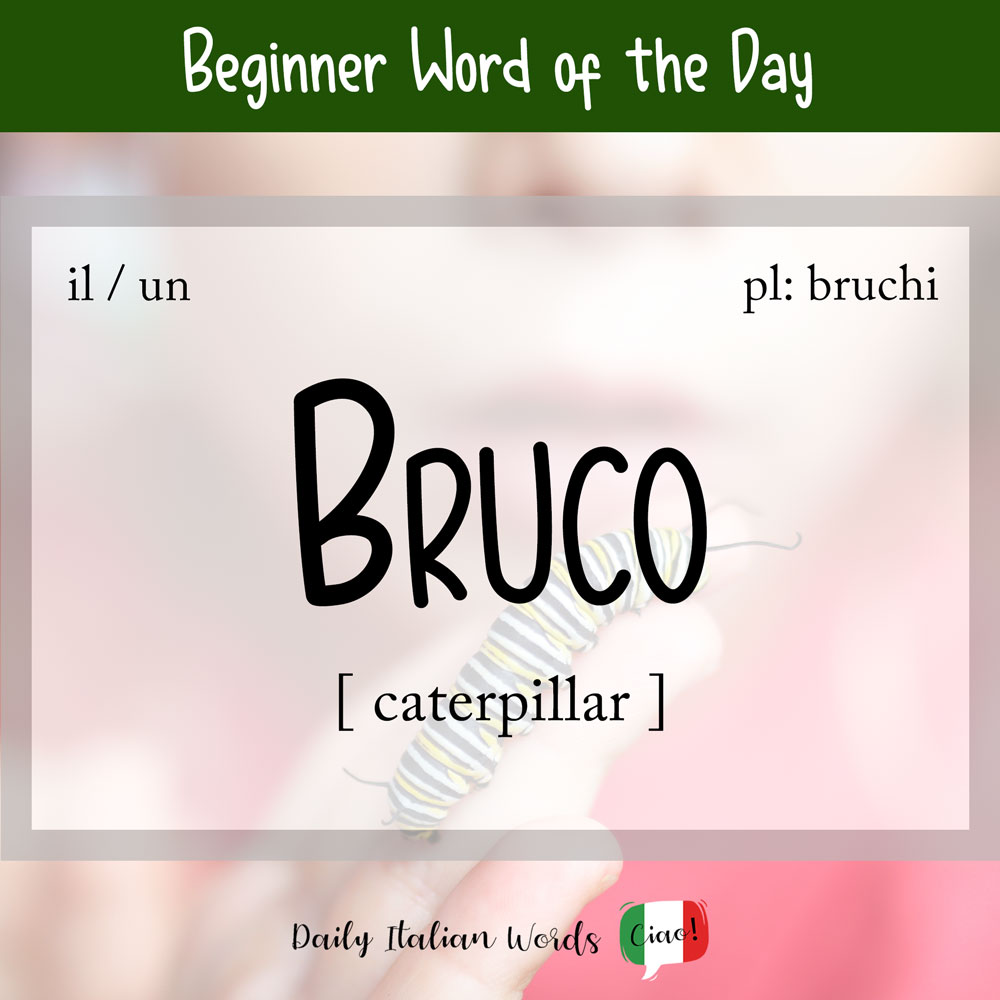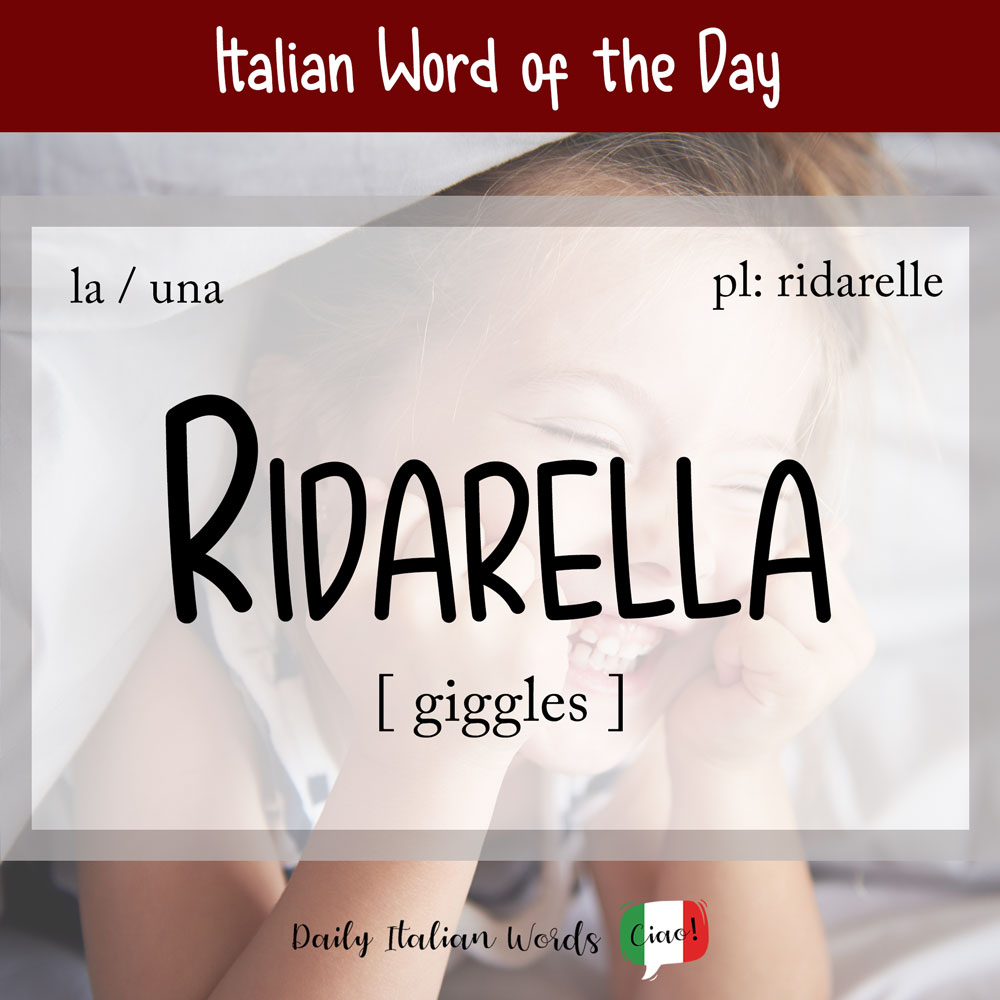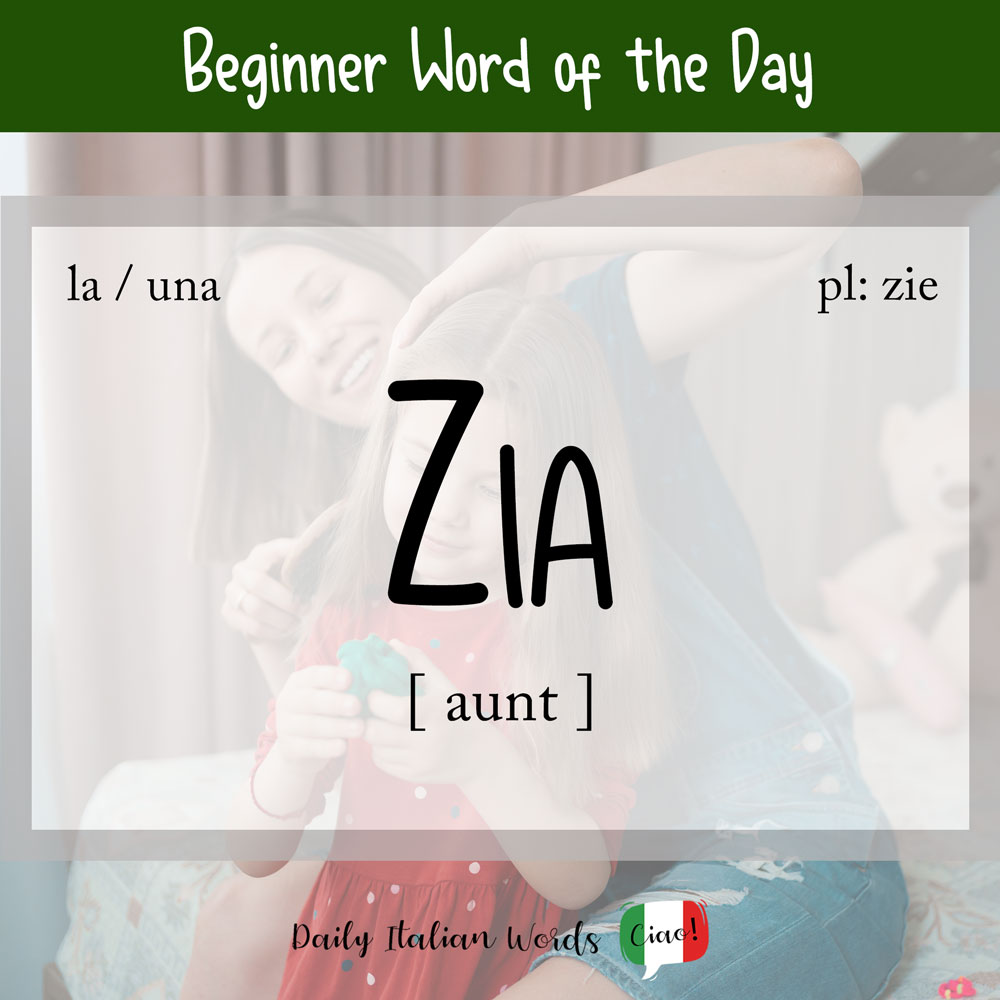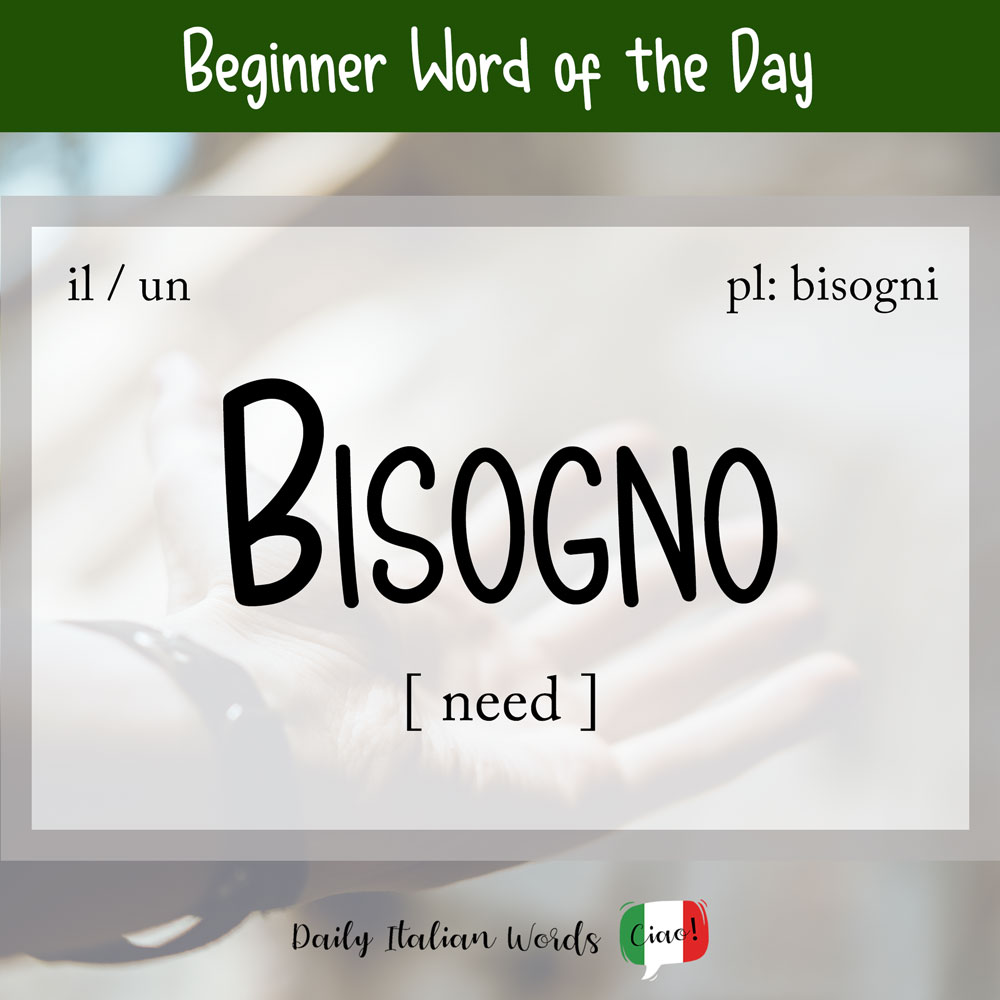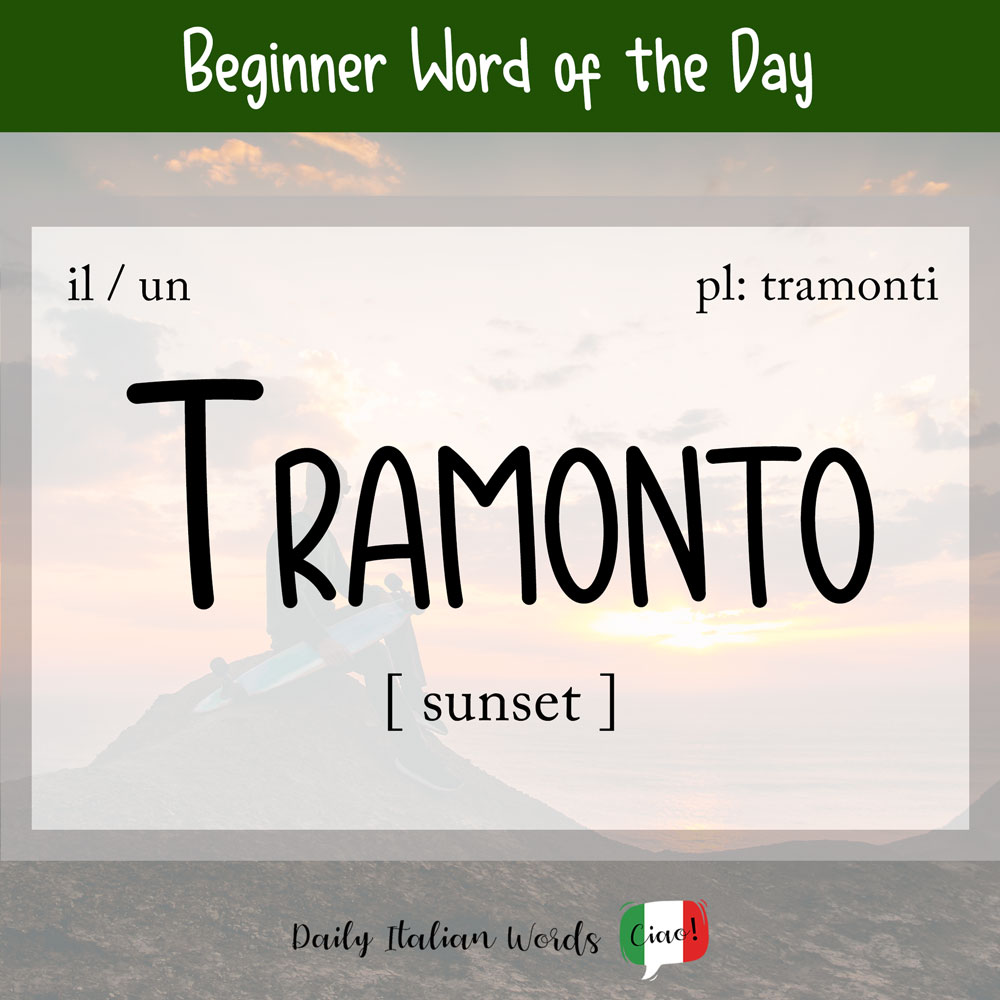Italian Word of the Day: Bruco (caterpillar)
As children, many of us are fascinated with the process by which a bruco (masculine, plural: bruchi) – the Italian word for caterpillar – turns into a butterfly (farfalla). The story begins with a caterpillar hatching from an egg (uovo). The caterpillar then stuffs itself with leaves, growing fatter and longer until one day, it …

